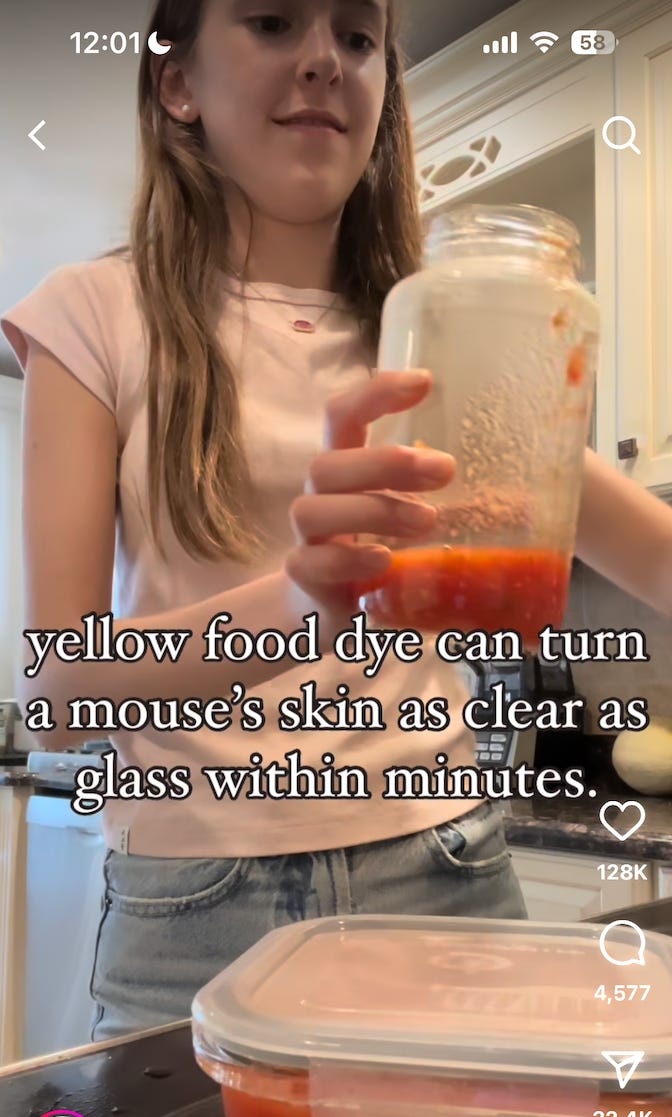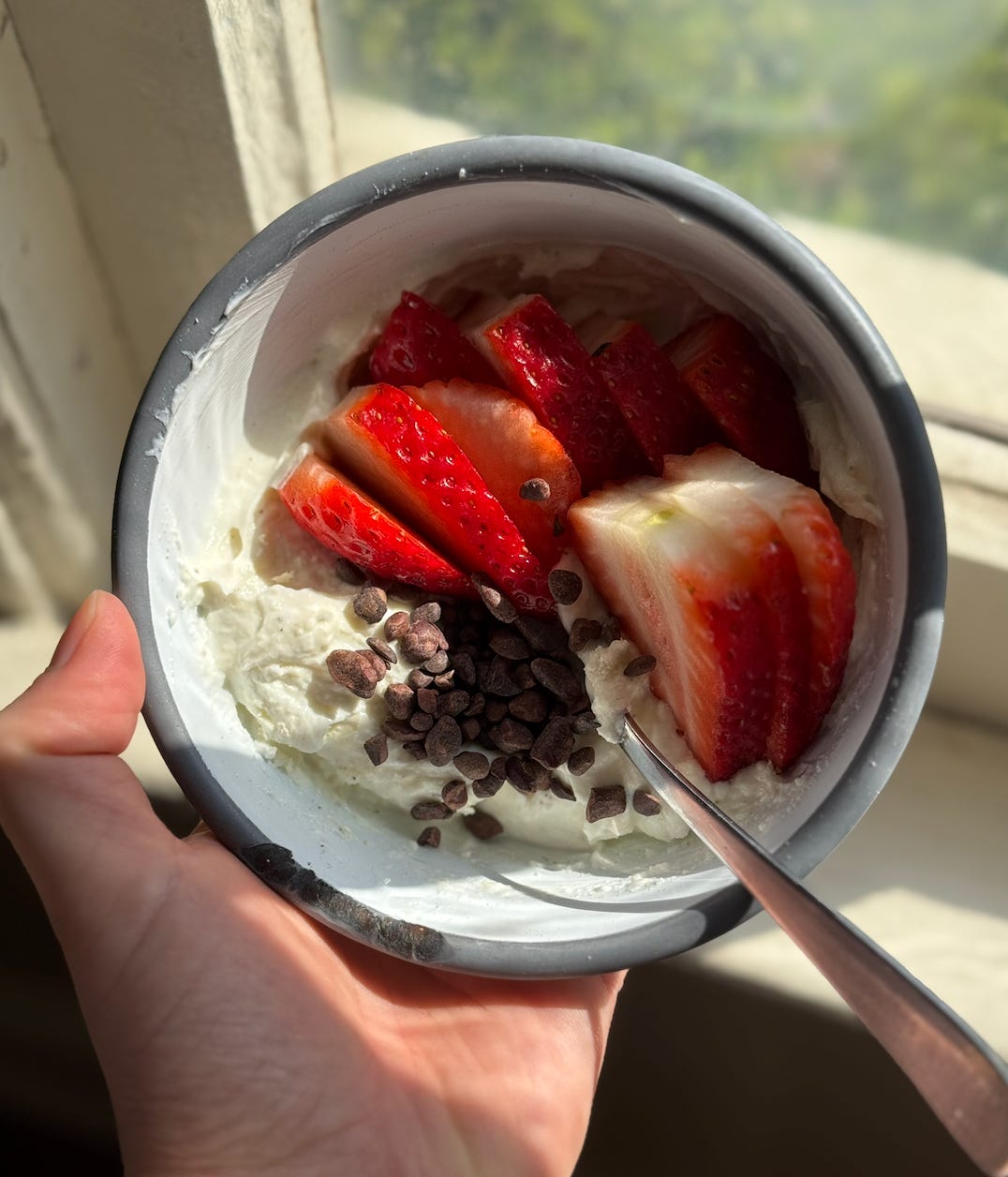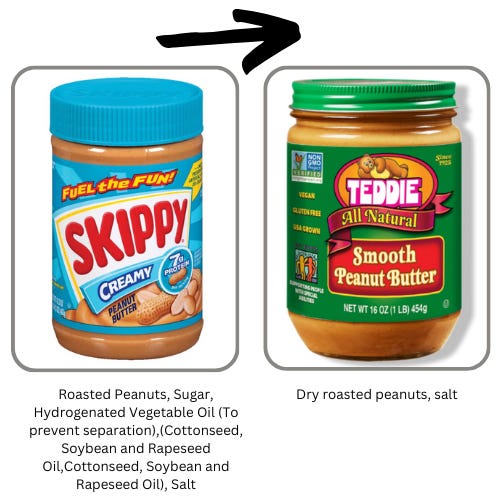I heard it on Instagram, so it must be true.
Navigating the social media swamp of nutrition information (and misinformation).
A friend and I were assembled a home-cooked dinner the other night and lo and behold the topic of nutrition came to the fore. This topic circulates frequently in my world, imagine that! She asked a pertinent question; one that’s incredibly relevant to my day-to-day. Is it bad that people get their nutrition information on [insert social media platform here]?
The answer is: yes, but no, but it depends.
When considering the ways in which we consume, vet and metabolize information, I think back to the critical thinking skills my various institutions emphasized across curricula. There was an emphasis on questioning the source, its motivations, conflicts of interest and comparing any evidence against the broader body of scholarly work that touched on the subject in question.
We spent years learning the difference between primary and secondary sources starting in middle school. In college, both statistics and science courses clarified how to interpret the quality of any data (for example, how did the size and make-up of a survey influence its validity).
I was taught to play devil’s advocate and find the weaknesses in my own strongly held stances so that I might be better prepared to defend them.
All of this is to say that I’m a little salty that social media has eroded the structures and processes that help combat misinformation. Carefully researched and supported stances by and large don’t bring in the dough.
In the field of nutrition, here are the dangers of getting nutrition advice from the internet, as I see it:
Health influencers often lack requisite training and experience
No formal fact-checking by the host platform
Algorithms promote divisive content and as you can imagine, untruths circulate far faster. Heck the hook“Lose 15 pounds in a week” would sucker me in!
Lack of customization in nutrition advice. What works for one body/condition does not necessarily work for another.
There are very real dangers associated with following a diet that’s not backed by rigorous science.
This New Medical research article diving into the minutiae of nutrition information also spoke of intentional malfeasance: “various factors were associated with spreading misinformation, including brand promotion by YouTubers, gaining popularity (more likes and views), and targeted efforts by influencers to attract specific demographics, such as women with low self-esteem.”
In my estimation, much of the misinformation and exploitation is financially and status motivated. When people are rewarded with brand deals and new followers for sharing wrong information, they are incentivized to turn up the dial.
They view women with low self-esteem as low hanging fruit, ripe for the picking.

Wider access to nutritional information comes with advantages as well and I don’t want to ignore that fact. Social media excels at connecting people with similar dietary challenges, offers a plethora or creative and nourishing recipes and can even clue people into what’s going with their body.
With that said, if you are getting your information from social media, here’s a few things that you can do to combat misinformation:
Examine the credentials of the person giving the advice (look for signalers like “Medical Doctor," and “Registered Dietitian”)
Verify the information in at least one other, reputable place. One quick way to do this is search for your query and tag “Google Scholar” in the search bar to see what relevant scholarly articles either support or refute the information in question.
For bigger decisions, like whether you should start taking a supplement or adopt a rigid diet, speak to your primary care physician or other practitioner.
Adopt a critical approach to reviewing information, keeping in mind that social media influencers have lots to gain from spreading misinformation.
Cooking affordable meals that are decidedly not ultra processed is doable and I want to show you how, dammit! Each newsletter, I’ll share one recipe to get your creative cooking juices ~flowing~.
Kitchen scraps are not just for dinner! I wanted to highlight my latest breakfast fixation as it hits all the high notes of affordability, customizability and ease. I work in the protein powder industry, so my protein powder is free, but you can use hemp hearts for a wallet friendly alternative. It cost $5-7 for a week’s worth of yogurt and I’ve been working through the same chia seeds for almost a year now…
Make Your Own Yogurt Bowl
Ingredients:
1 cup Greek yogurt
Protein powder or hemp hearts
Chia seeds
Nut butter
Fresh or frozen fruit
Directions:
Mix yogurt and protein powder/hemp hearts until well combined.
Top the bowl with other nuts, seeds, spreads and fruit.
This recipe is endlessly customizable. I tried mixing in turmeric and frozen mango the other day to great results!
I encourage you to flip around the label on your favorite packaged foods. Doing this is one step towards in decreasing the amount of ultra processed foods you’re regularly consuming. Here’s one switch I make:
I was raised on Teddie’s, a local-to-me Massachusetts brand so I am admittedly a little biased by nostalgia (but aren’t we all). Hydrogenated oil in Skippy keeps the peanut butter well combined, but it should be consumed sparingly. Interesting fun fact I just learned, “a food can have hydrogenated oil and still be considered trans-fat-free if the hydrogenation process is complete, meaning all double bonds are saturated, turning the oil into a solid fat.” In this case, the hydrogenated oils are complete, so there are no trans fats. Trans fats are a big no no when it comes to cardiac health.
I would also mention that added sugar in Skippy feels superfluous. Keeping an eye on added sugar in your diet is critical. Personally I’d rather save the added sugar for an intentional dessert. Just for reference, “a diet high in sugar is considered low nutritional quality since it increases energy density and reduces nutrient density (micronutrients), leading to an unhealthy diet, weight gain, and an increased risk of diseases.” I come with the receipts.
Learn more about the author here. Thanks for letting me riff about the food topics that keep me up at night!









Yay!